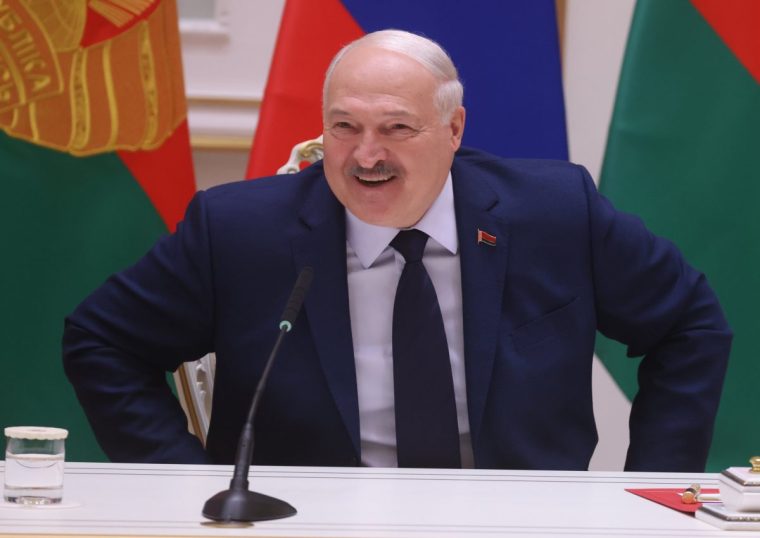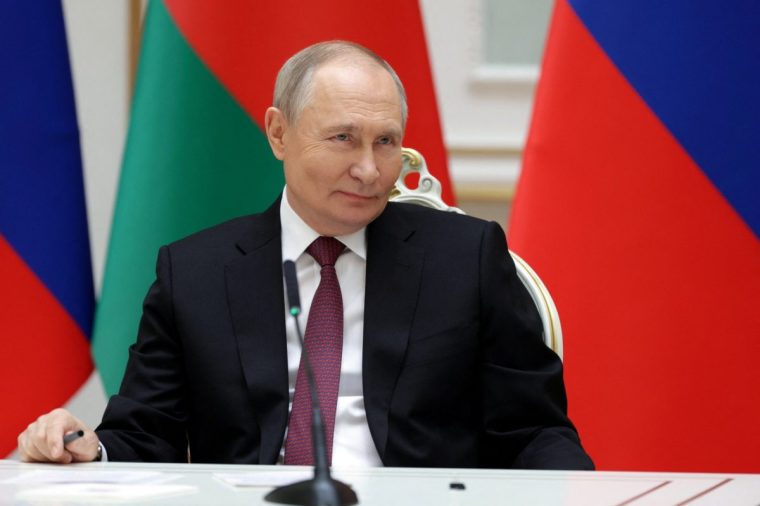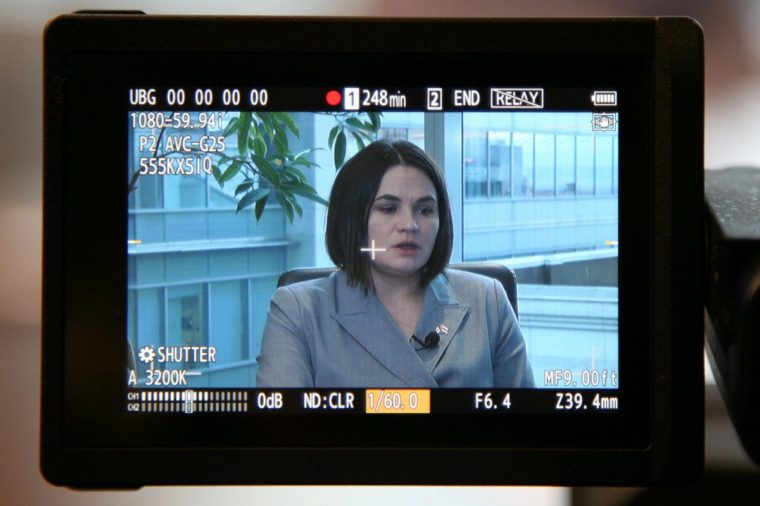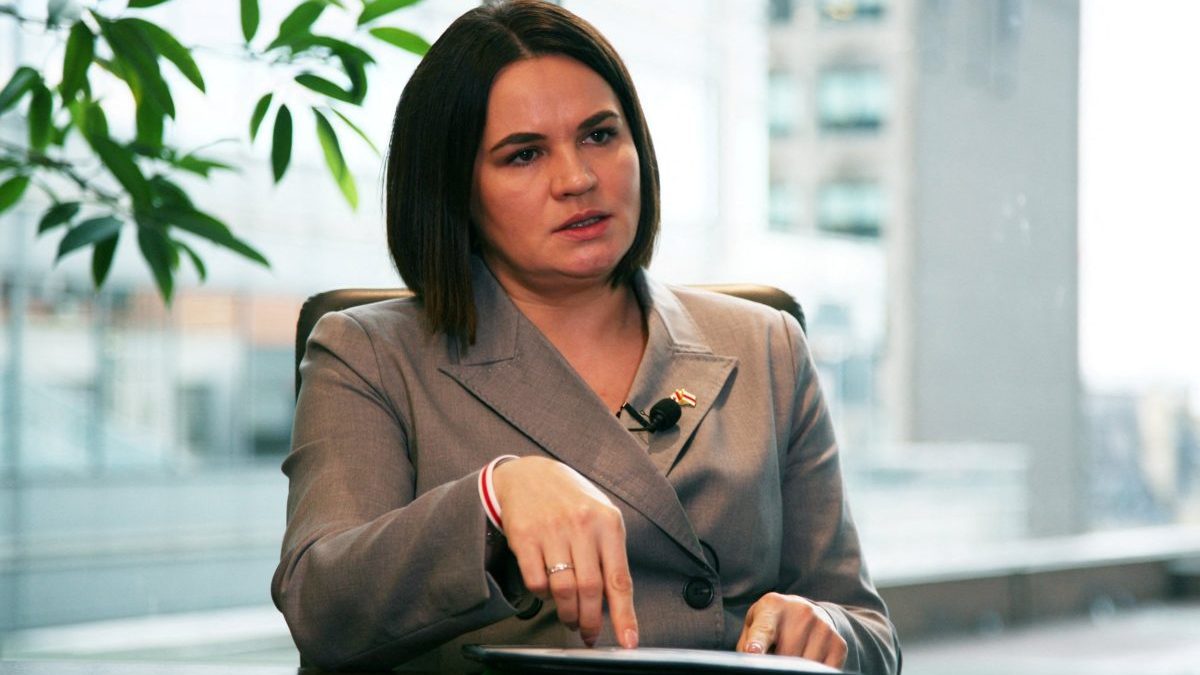A self-described ‘housewife’ leading Belarus’s opposition from exile says events in Syria reveal the brittle hold on power people like Lukashenko and Putin have
The swift fall of Bashar al-Assad’s regime in Syria stunned many, who assumed that the Russian-backed tyrant was so entrenched that he would be impregnable.
But it did not surprise Sviatlana Tsikhanouskaya, the exiled Belarusian opposition leader who has made it her mission to topple Belarus’s Russian-backed strongman Alexander Lukashenko.
“Dictatorships are not as strong as they look,” she tells The i Paper in Brussels. “They are not invincible. In Syria, they had a dictatorship for 40 years. The regime fell quickly. This can happen fast, much faster than people think. They are very fragile, including Lukashenko.”
Lukashenko seized control in Belarus in 1994, when Tsikhanouskaya was just 11 years old, and he has remained in power since. But she says his authority is based on the illusion of strength.
“Lukashenko is much weaker than he looks,” she says. “Dictatorships thrive on fear, repression, and the idea of invincibility. They silence dissent, they suppress freedoms. But they do not have some superpower. They are not superheroes. They can be beaten. And beaten by the people, if the people rise up as one.”
 Belarusian president Alexander Lukashenko is a close ally of Vladimir Putin (Photo: Getty Images)
Belarusian president Alexander Lukashenko is a close ally of Vladimir Putin (Photo: Getty Images)
Tsikhanouskaya is in Brussels to rally support from the European Union ahead of the 26 January presidential elections in Belarus, which are already being dismissed as a sham.
At the last elections, in August 2020, she emerged as the unlikely political challenger to Lukashenko, contesting in the place of her jailed husband Sergei Tsikhanouski, an activist and YouTuber.
Although Lukashenko declared victory with more than 80 per cent of votes, unofficial tallies put support for Tsikhanouskaya, a self-described “housewife”, at around 75 per cent. She fled to the Lithuanian capital Vilnius with her son and daughter shortly after, where she remains, while regularly meeting Western leaders to warn against complacency.
“In 2020, the people of Belarus voted for change. This terrified Lukashenko, who then stole the election and then unleashed massive terror against Belarusians,” she says. The brutal crackdown led to 65,000 arrests, including major opposition figures.
Ahead of the January poll Lukashenko is already cracking down hard on pro-democracy campaigners. “Don’t say that there is an election in January,” Tsikhanouski says. “Everyone knows it is not a real election. He will cheat again. He could even say he won 120 per cent of the vote. In the West, you live in luxury not knowing who your next president will be!”
 Russia’s president uses his alliance with the Belarusian leader as part of his war on Ukraine (Photo: Gavriil Grigorov/Sputnik/Reuters)
Russia’s president uses his alliance with the Belarusian leader as part of his war on Ukraine (Photo: Gavriil Grigorov/Sputnik/Reuters)
Since Russia’s full-scale invasion of Ukraine in 2022, Tsikhanouskaya has made a common cause of the fights for freedom in both countries – and battled against complacency from a potentially fatigued West.
Russian president Vladimir Putin has also used Belarus as a launchpad for many of his attacks on Ukraine – while effectively propping up Lukashenko’s regime.
“Both Ukraine and Belarus want to be free, they want to be democracies, they want a European future. They do not want to have Russia deciding for them,” she says.
“Ukraine fights Russians with missiles, with tanks. In Belarus, we have a creeping occupation, a process of Russification, where they destroy our national identity. They are erasing our culture and rewriting our history. But our desire for freedom remains unbroken.”
With Donald Trump returning to the White House, promising to broker a peace deal for Ukraine, Tsikhanouskaya wants to ensure that Belarus is not left behind as an effective vassal state of Russia.
“Belarus is part of this crisis and can be part of the solution. Belarus should not be given as a consolation prize to Putin in any deal,” she says. “We don’t want people to forget us. We don’t want to remain in exile, in a bubble, far from home. We want to come back to Belarus. But a Belarus that is free.”
 Sviatlana Tsikhanouskaya has not seen her husband in four years (Photo: Kyaw Soe Oo/Reuters)
Sviatlana Tsikhanouskaya has not seen her husband in four years (Photo: Kyaw Soe Oo/Reuters)
Tsikhanouskaya supports the many Western sanctions on Belarus, but says they are “not a silver bullet”. And she warns about Lukashenko’s attempts to undermine the EU by bringing asylum seekers from the Middle East and North Africa to Belarus’s border with Poland, Latvia and Lithuania.
“It is disgusting,” she says. “They are picking people up and sending them to the border just to disrupt Europe. It shows how they do not care. The migrants did not ask for it – but again, they don’t care. For the regime, migrants are just weapons. They are bullets, that can be used against the West.”
It has been a gruelling time for Tsikhanouskaya. She has not seen her husband since 2020, and she has not heard from him in four years. “I don’t know if he’s alive,” she says, noting how Russian opposition activist Alexei Navalny died in an Arctic penal colony earlier this year.
“That is how they want to break us. They keep us incommunicado,” she says. “My children have learned a lesson. It is a cruel lesson, but it is still a lesson: you have to fight for your values, for what you believe in.”
She wears a silver necklace with a small map of Belarus, while her bracelet is a simple white and red band, which was used as an unspoken signal by opposition voters during the 2020 election.
It is banned now: she says wearing such a bracelet – or such colours on other items of clothing, like white socks with a red band – could lead to detention. “People are arrested for wearing wrong colours, for singing Belarusian songs, for speaking Belarusian language,” she says.
The prospect of the end of Lukashenko’s regime brings to mind The Death of Stalin, Armando Iannucci’s 2017 black comedy. Tsikhanouskaya smirks at the movie.
“It is important to see dictators for who they are, and not now they want you to see them,” she says. “The film shows how people around them need to think about what they do when it happens because when it ends, it can fall down completely, and there is nothing left. What do they leave behind? What is their legacy? There is nothing good.”
